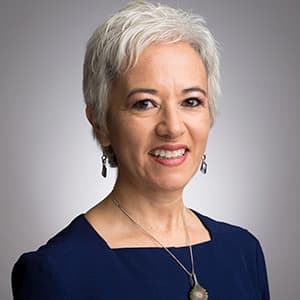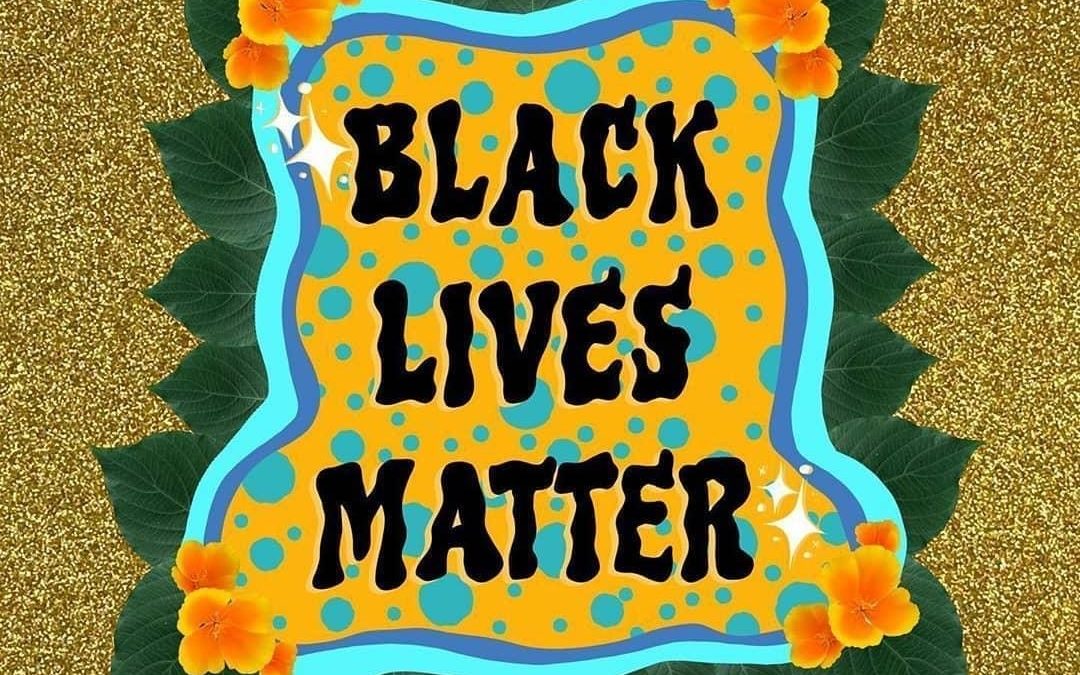Executive Director Patricia Patrón’s Address to Outside In Staff
The last few days, weeks, and months have been full of violence and tragedy, which has impacted our Black community terribly. This comes after years of oppression and amidst the COVID-19 pandemic which has disproportionally killed Black and Brown people at a higher rate than white people.
Before I start, I want to let you know that my words today may make you uncomfortable because of their tone, because of your stands on race, racism, and anti-racism; and more importantly because you have been a victim of acts of violence, microaggressions, discrimination, and oppression just because of the color of your skin.
To our Black staff, I want you to know that you are seen, you are heard, and I stand with you not only in solidarity, but in my commitment to hold myself and this Agency accountable for our contributions to institutional racism. And I stand in my commitment to take intentional action in order to achieve meaningful change so your dignity is preserved every day in all you do here at OI and in the world.
We recognize that our Black staff live with systemic racism every day. Fear, aggressions, violence, inequities are part of their lives every day.
This afternoon we acknowledge racism is real, it is systemic, and it has been institutionalized. We stand against racist violence. We stand against oppression.
Today, we reflect on the acts of violence which resulted in the murders of George Floyd, Breonna Taylor, Ahmaud Arbery, Philando Castile, Alton Sterling, Atatiana Jefferson, and so many others who have died in our country – victims of prejudice, discrimination, profiling, oppression, and police brutality.
The U.S. has a long history of enslavement and colonialism. Today, systemic and institutional racism condones targeting, persecuting, discriminating, oppressing, and killing Black people just because of race.
It is frustrating to see/hear white people appear to be shocked at the unrest displayed across the US and the lack of understanding for the level of frustration, anger, rage, and pain our Black community is experiencing.
To our non-Black staff, we need to take a step back and try to comprehend what is means to live in fear.
What it takes for a Black person to engage in “normal” activities, like jogging, bird watching, pulling a cell phone from a pocket, and even sleeping… all of which put Black lives in danger when neighborhood vigilantes and privileged and ignorant white people use their power to continue to undermine the humanity and dignity of Black people. Or when Black lives are ended at the hands of those whose job it is to protect them.
We must turn our attention to the deep roots of white supremacy and demand change. Our actions, language, and policies must be geared towards a transformational revolution, so we can all live in a world where indeed Black lives matter. Just saying it, posting it in our yards, or wearing a pin with the words is meaningless if we sit at the sidelines and remain silent.

Artist Instagram: @broobs.psd
Do not take the easy way.
Do not convince yourself that you are doing enough. Or, maybe you are telling yourself this problem is too big to be resolved, and ask yourself who are you to make a dent? You have more privilege because you don’t have to think about the color of your skin from infancy to death, from dawn till dusk. You are indeed responsible for examining your own unconscious biases and racism, demanding change, and acting to get us all there.
This weekend, as I sat with the pain of seeing our country in shambles, and I struggled to understand if we have any common human values that can guide us in this process, I was frustrated seeing the conversation turn away from systemic racism and police brutality and focus on the impact of rioting and looting.
It’s so easy to dehumanize the current situation and concentrate on the physical damage. Today, we are not talking about the response of the protesters, although your personal perspective about the riots and looting across the nation and in our community is a good indicator of where in your anti-racist journey you are at.
Kareen Abdul-Jabbar wrote in an Op-Ed in the Los Angeles Times: “…protests often are used as an excuse for some to take advantage, just as when fans celebrating a hometown sports team championship burn cars and destroy storefronts. I don’t want to see stores looted or even buildings burn. But African Americans have been living in a burning building for many years, choking on the smoke as the flames burn closer and closer. Racism in America is like dust in the air. It seems invisible — even if you’re choking on it — until you let the sun in. Then you see it’s everywhere. As long as we keep shining that light, we have a chance of cleaning it wherever it lands. But we have to stay vigilant, because it’s always still in the air.”
When we dehumanize the issue at hand, we stop demanding justice and we get to a comfortable place where the conversation is not about who gets to live and who does not. We must speak up about all attempts to remove Black people from white spaces and that includes our work at Outside In.
For our non-Black staff – My call to every one of you is to take a step back, take time to reflect and figure out how will you support the Black community because we cannot accept the conditions and systems that continue to harm Black people.
I hope all of you will be thinking about ways you can actively support anti-racist policy and overt oppression. We all must decide if we are allies or accomplices.
At the last town hall meeting, I talked about Outside in’s commitment to center our Diversity, Equity, and Inclusion work on race. I want to assure you that this is not just lip service. As an organization, we all need to commit to justice, which starts with how we operate.
Our commitment to center our equity work on race must translate into having a safe place for us to work, free of racism and discrimination. To achieve that we need to pursue critical knowledge: understand what is happening, and educate ourselves by reading the work of Black scholars, educators, and story tellers. We must adopt radical empathy and compassion not only in feeling and understanding where others are at but in holding ourselves accountable for where we are at in our anti-racist journey. And finally, we need to take intentional action.
As such, Outside In is committing to:
- Continue the conversation
- Look at our own agency and the actions we can take to evaluate our policies and procedures.
- Ask the DEI Committee to hold a meeting to focus on specific actions the agency can take to address institutionalized racism within our own agency. As part of that work, we will be reaching out to staff to gather input and ideas.
- Engage the DEI committee in curating a list of resources for staff to actively educate themselves and take action.
- Advocate for changes to the State of Oregon’s Officers Bill of Rights, which is the state law that protects officers engaged in misconduct.
- Call on Governor Brown to convene a special short legislative session to address police accountability and support for OR’s communities of color as a priority.
- Inviting you to sign the Color of Change Petition to End Violent Policing Against Black People.
- Encouraging all of you to exercise your right to vote and to elect local, state, and federal officials who represent marginalized voices and fight for justice and equity and the reform of traditional systems, including existing law enforcement structures.
Finally, I wanted to acknowledge that as an Agency and as your executive director I did not address these issues when the most recent acts of violence and discrimination were committed. We failed to have our voice be present and supportive soon enough. I hope to do better. And I also acknowledge that we cannot continue to put the burden of having us do better as an Agency on our Black and Brown staff. To be fully committed means to be fully present and to be able to prioritize our work.
In closing, I want to share a quote by Archbishop Desmond Tutu, a South African Anglican cleric and theologian known for his work as an anti-apartheid and human rights activist, “My humanity is bound up in yours, for we can only be human together.”
Patricia
Executive Director, Outside In

Thank you!
It is because of you – our community –
that Outside In is able to save the lives of thousands of people each year.
We would love to hear from you!
Please feel free to share your thoughts, ideas, and questions with us.
We are grateful for your support!
Your support of Outside In creates health and hope for the more than 11,000 people we serve every year. We can’t say it enough: THANK YOU!

